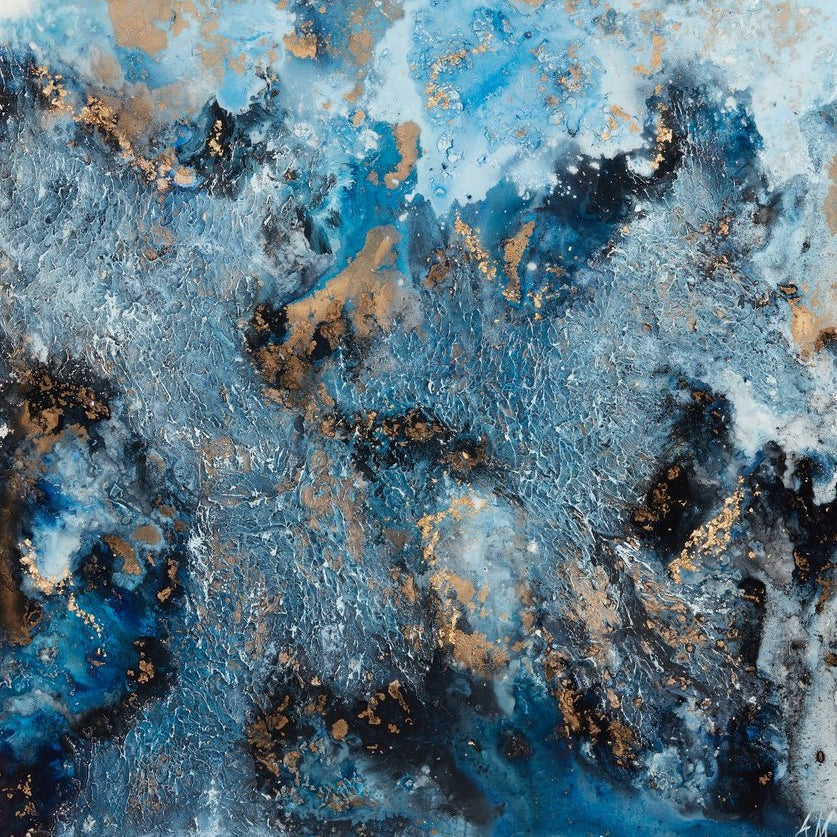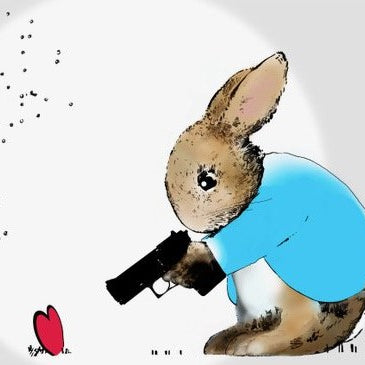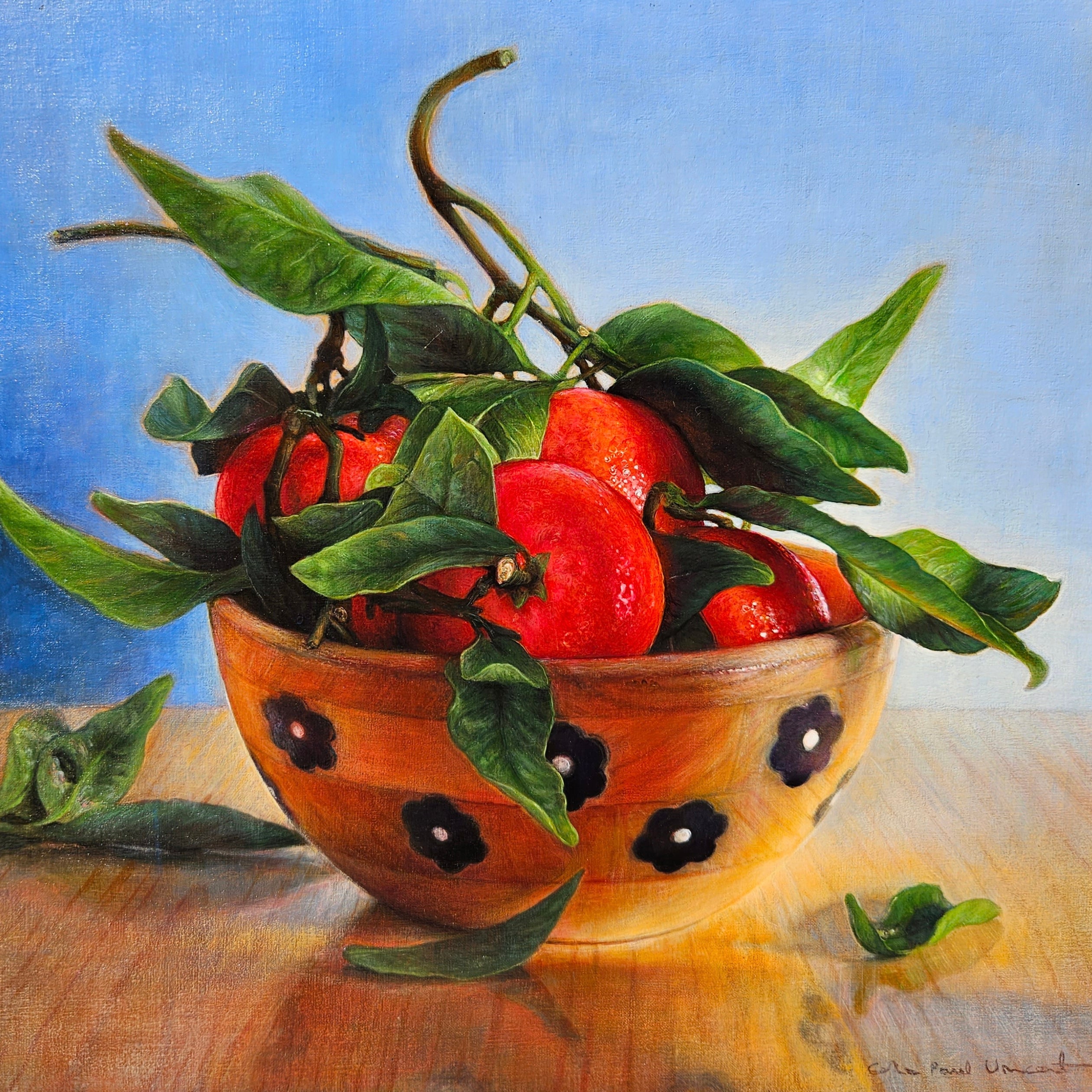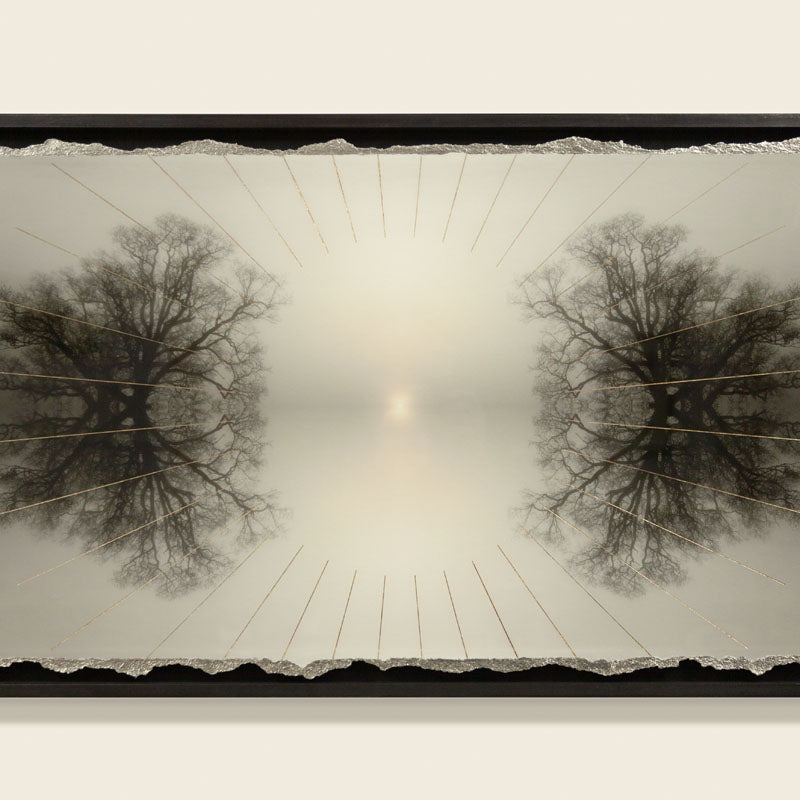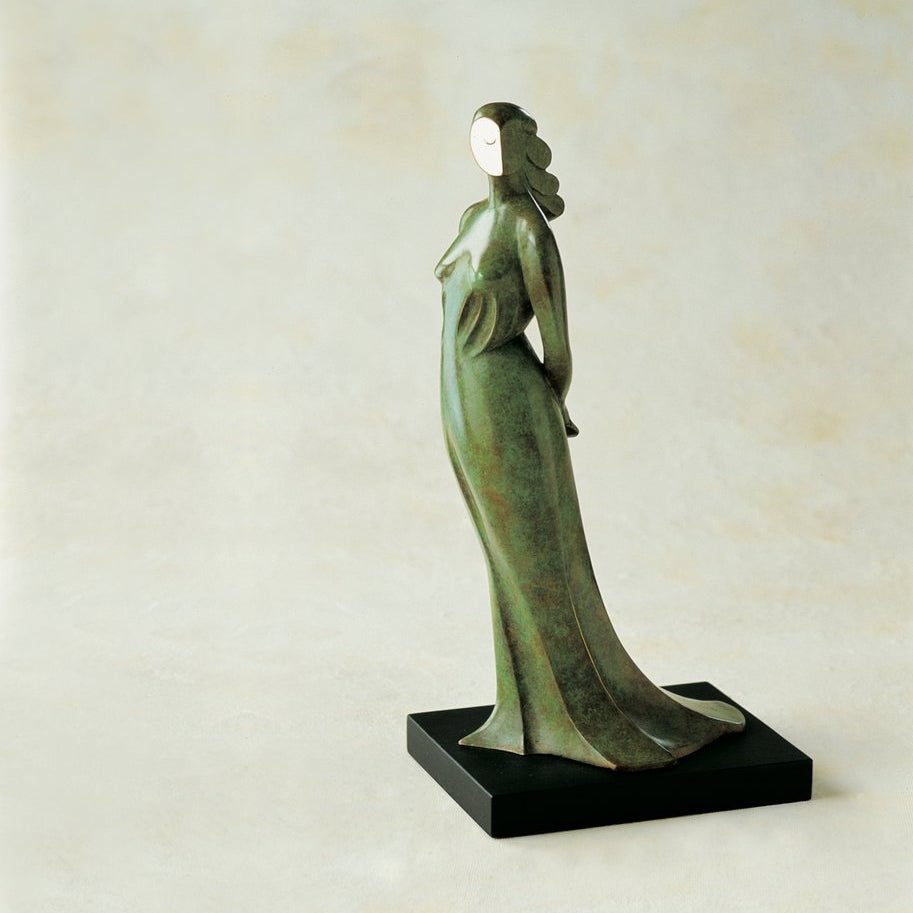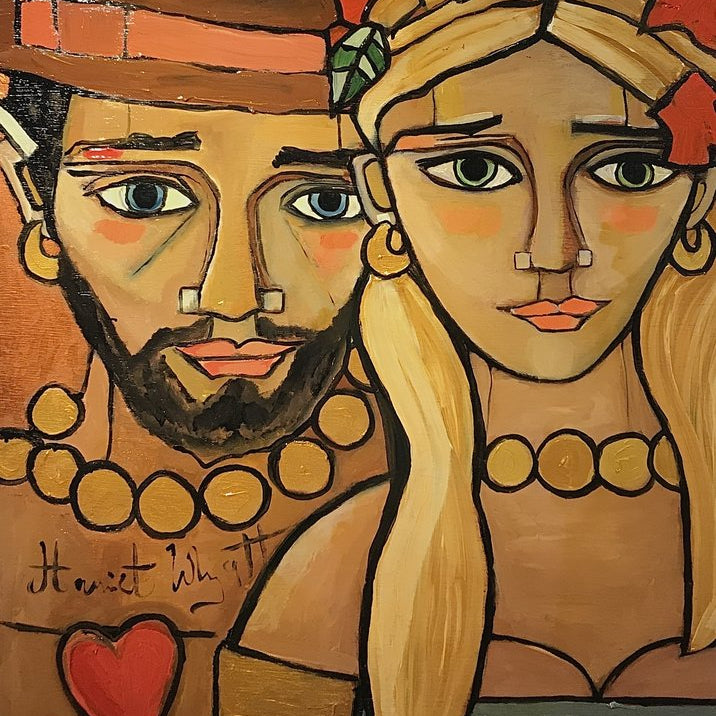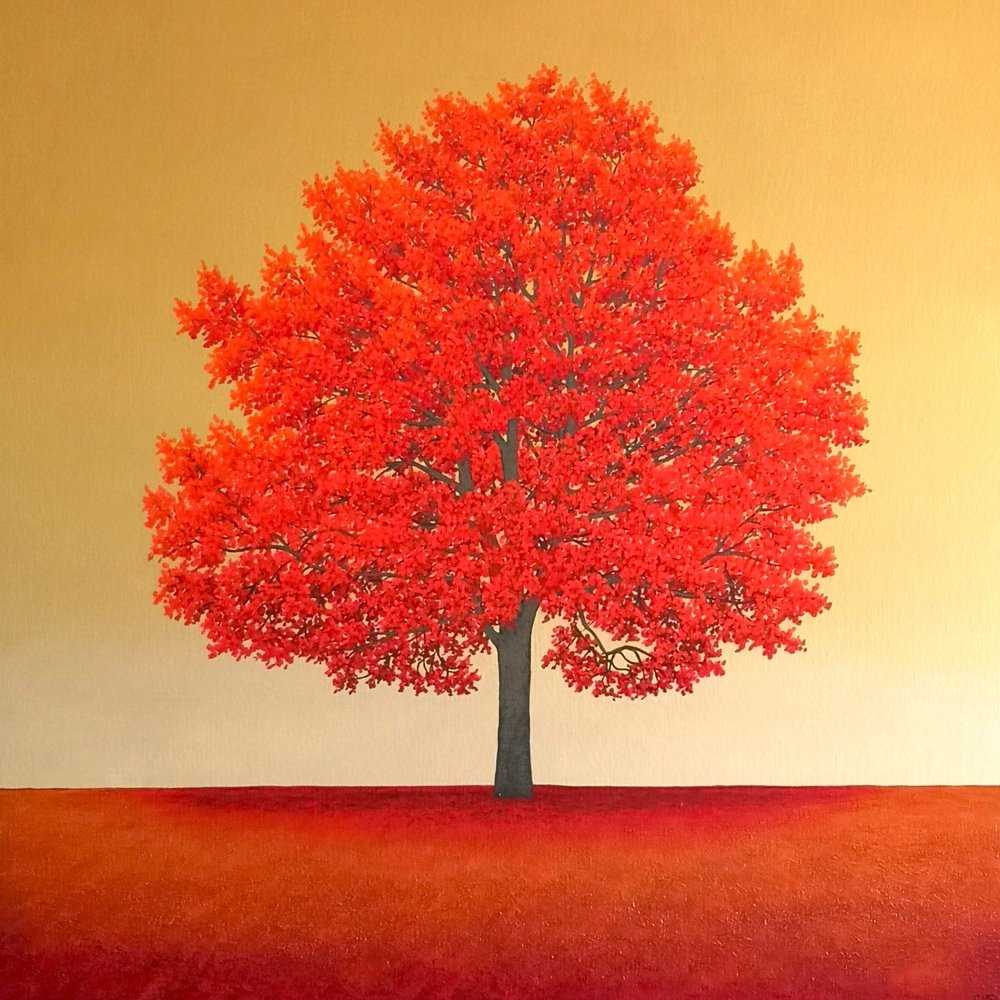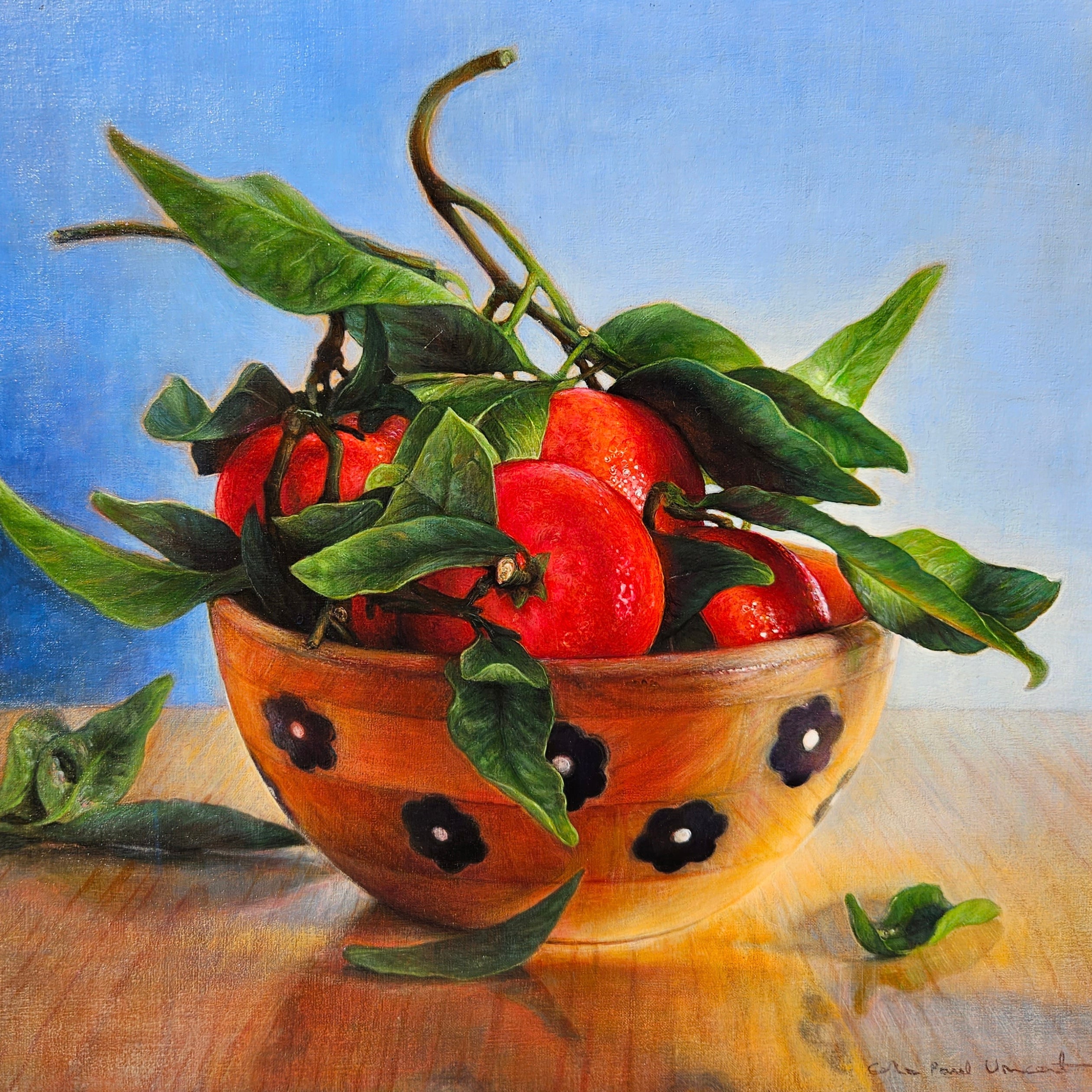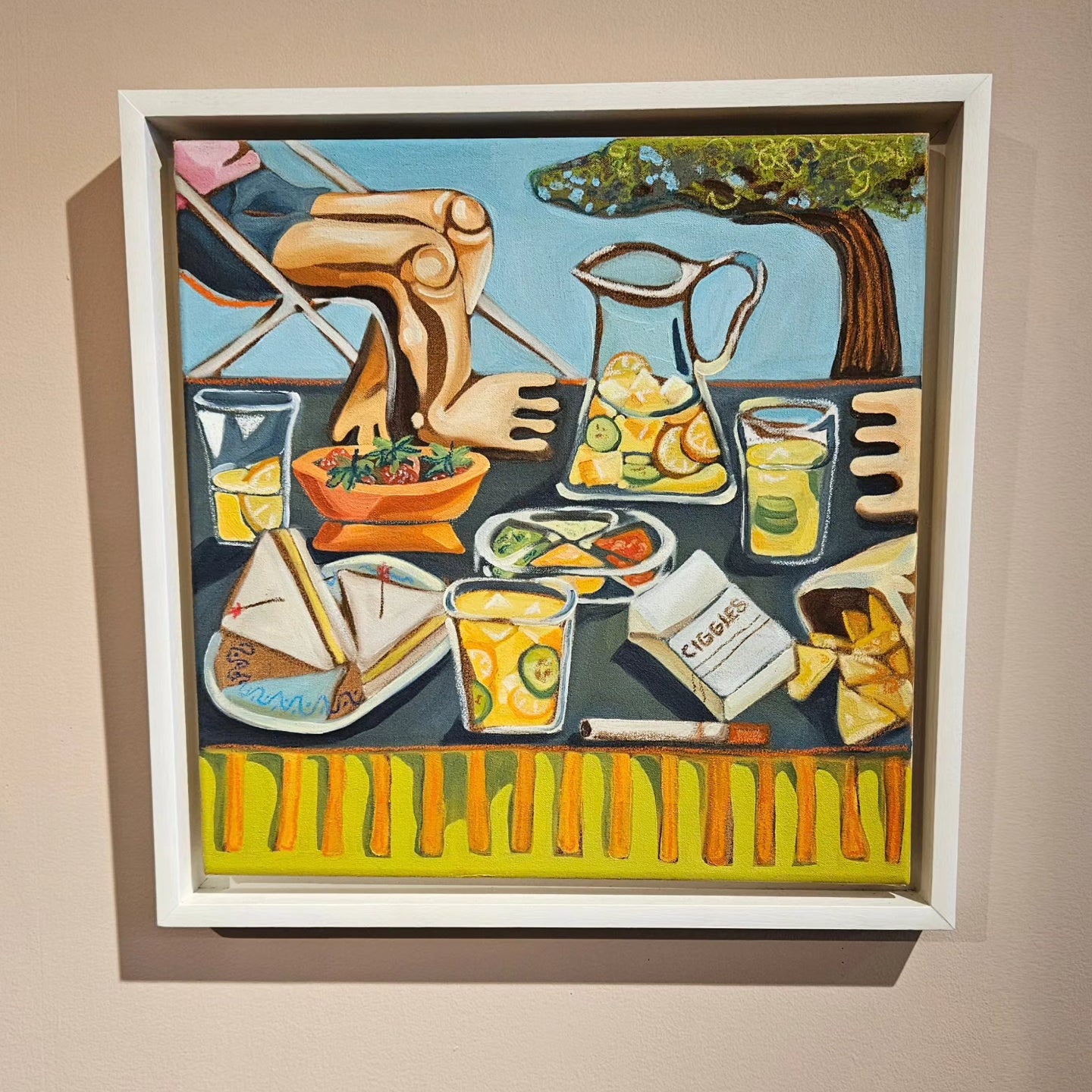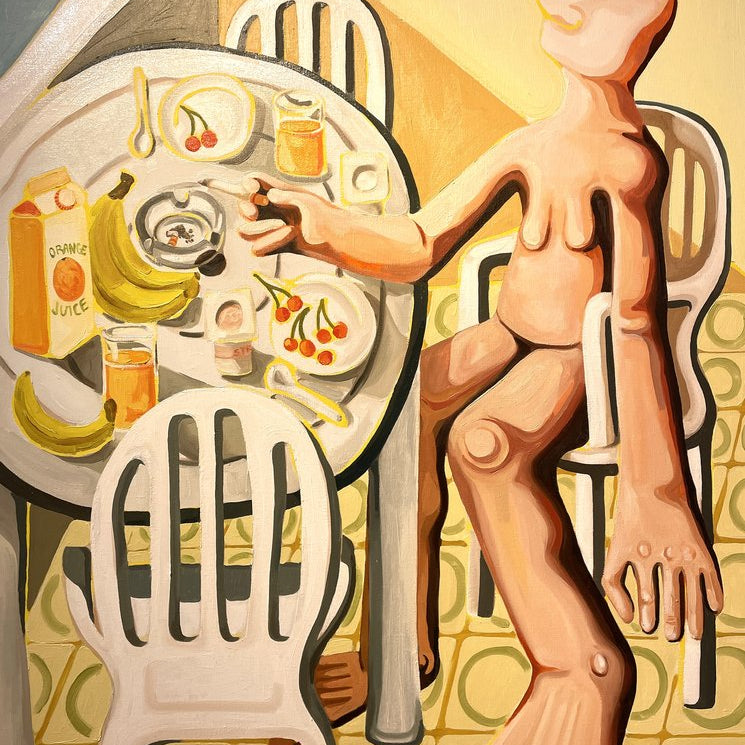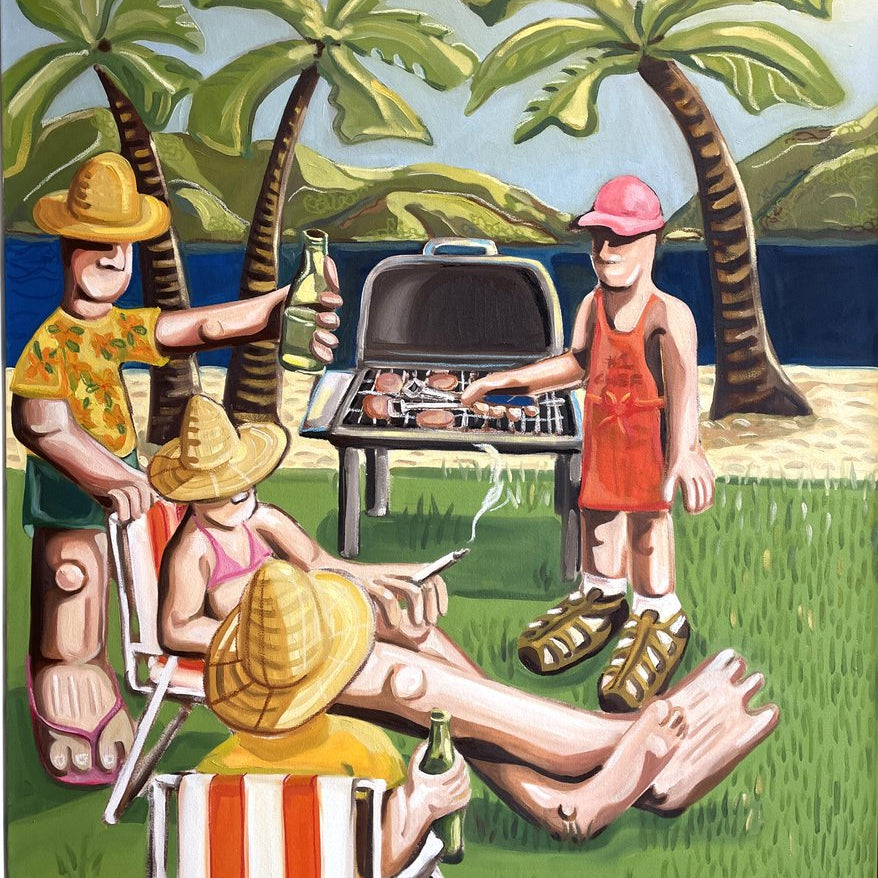Lucy Hutchings
Lucy Hutchings' passion for art began back in her home of Hong Kong, taking this to a Fine Art degree, Hutchings moved to Leeds in September of 2019. Her appreciation of art grew each term, finding her love for contemporary figurative painting.
The fascination of portraiture initially begun with Hutchings's interest of colours and shapes, which later evolved by painting facial features to these fields of colours, creating obscure portraits. This period of Hutchings's practice was heavily influenced by artists such as Picasso, Emilio Villalba and George Condo, who all envisioned portraiture to be more than the boundaries of the face. Deconstructing the composition of a portrait onto the canvas and testing the boundaries of familiarity.
February 2020, the rise of Covid 19, a time in which uncertain change was in sight, pushed the obscurity of Hutchings's practice. Gradually emphasising the figures personality and psychological state, Hutchings wanted her portraits to be felt or sensed by the viewer. Engaging the viewers in an apprehensive relationship with the figure and space. This new vision of portraiture had encouraged Hutchings to explore the boundaries of figurative painting, leading into her practice of Uncanny Figures.
Lucy's figurative practice developed with the obscurity of Covid and reflects the subconscious changes of emotions and lifestyle post-pandemic. She displays the celebratory feeling of joy and freedom through comedic oil paintings of nude figures intoxicated on red wine at different scenes of a dinner party. The figures' drunk interactions are an indication to real life, with people being able to meet and go out to events, there is a unity and feeling of privilege, and this stupidity of relearning how to be human again is seen in the obscurity of the figures. The encounter with these paintings are unusual for the audience because the viewer can picture themselves in the drunken state of the figure, however they can't fully connect to who these people are.
The fascination of portraiture initially begun with Hutchings's interest of colours and shapes, which later evolved by painting facial features to these fields of colours, creating obscure portraits. This period of Hutchings's practice was heavily influenced by artists such as Picasso, Emilio Villalba and George Condo, who all envisioned portraiture to be more than the boundaries of the face. Deconstructing the composition of a portrait onto the canvas and testing the boundaries of familiarity.
February 2020, the rise of Covid 19, a time in which uncertain change was in sight, pushed the obscurity of Hutchings's practice. Gradually emphasising the figures personality and psychological state, Hutchings wanted her portraits to be felt or sensed by the viewer. Engaging the viewers in an apprehensive relationship with the figure and space. This new vision of portraiture had encouraged Hutchings to explore the boundaries of figurative painting, leading into her practice of Uncanny Figures.
Lucy's figurative practice developed with the obscurity of Covid and reflects the subconscious changes of emotions and lifestyle post-pandemic. She displays the celebratory feeling of joy and freedom through comedic oil paintings of nude figures intoxicated on red wine at different scenes of a dinner party. The figures' drunk interactions are an indication to real life, with people being able to meet and go out to events, there is a unity and feeling of privilege, and this stupidity of relearning how to be human again is seen in the obscurity of the figures. The encounter with these paintings are unusual for the audience because the viewer can picture themselves in the drunken state of the figure, however they can't fully connect to who these people are.
